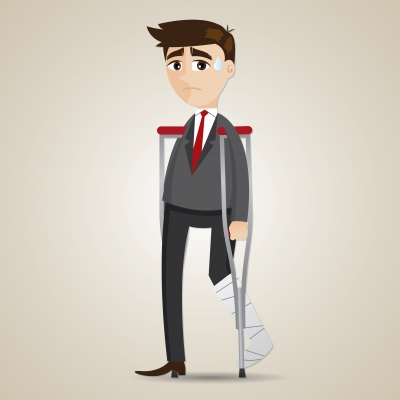Accidents happen – all the time – and, unfortunately, it’s all too easy to throw your hands up in frustration, not knowing how to proceed when the damage has been done. The fact is that victims of injury at work may have the right to compensation; after all, the employer is responsible for the health and welfare of the staff and employees of the company. Here, then, is what you should know about proper compensation for work-related injuries.

Notify your Employer Immediately
Unless you work for a very small company (with only one or two employees, for instance), your employer is required by law to keep an ‘accident book’ – a logbook where all accidents that occur in the workplace or are work-related are recorded. This ‘accident book’ is useful for several reasons. First, it allows the employee to record the incident in case of injury and refer to it when seeking compensation. Secondly, it allows the employer to review the recorded incidents periodically to improve the system and prevent accidents from happening again.
You should make it a point to report any injury from work-related incidents to your employer immediately, even if you feel that it may not be the employer’s fault. Any accident on the premises of the company, or even off the premises (as long as it happened during the performance of one’s work-related duties), automatically concern your employer and company and should be recorded.
Start the Investigation
It’s not just about finding out who is responsible; it’s also about making sure such incidents never happen again. Was the accident a result of malfunctioning equipment? Was there a slip because the floor happened to be wet? Was the incident caused by incorrect procedures and could it have been prevented?
Greater insight into what happened will affect the way things are done in the company. It will spur on the review of risk assessment, encourage effective decision making regarding how many first-aid employees are needed (and what tools they will have at their disposal), and instigate discussion about correct procedures and proper employee training.
Claim Compensation Immediately
If you feel that your employer is at fault with a workplace or work-related accident, have an honest conversation with them and claim compensation for your injuries. You don’t need to cause a ruckus and threaten to sue your employer immediately – employers are insured and understand that you are a victim. They, too, wish that it could have been avoided and usually cooperate fully. But start the procedure early to avoid the incident from being swept under the rug.
Employees have rights to sick leave and statutory sick pay. If the accident was caused by negligence or faulty procedures, you may have the right to extra compensation and restitution as well.
Take Care of Documentation
Your documentation will tell the story – so make sure you have that in perfect order at all times. The accident should be recorded in the ‘accident book’. Proper health services should be notified and their responses recorded as well. Check your contract and make sure you understand the various clauses that are related to work injuries. And, don’t forget to keep those medical records – they are very important.
Often, work-related injuries can be amicably settled and employees receive the just compensation and sick leave they require. To ensure that everything goes at it should, however, don’t forget to follow the correct procedures, take the necessary steps to state your claim, and consult with a good personal injury solicitor regarding the proper way to get compensation from your injury at work claim.










Comments are closed.